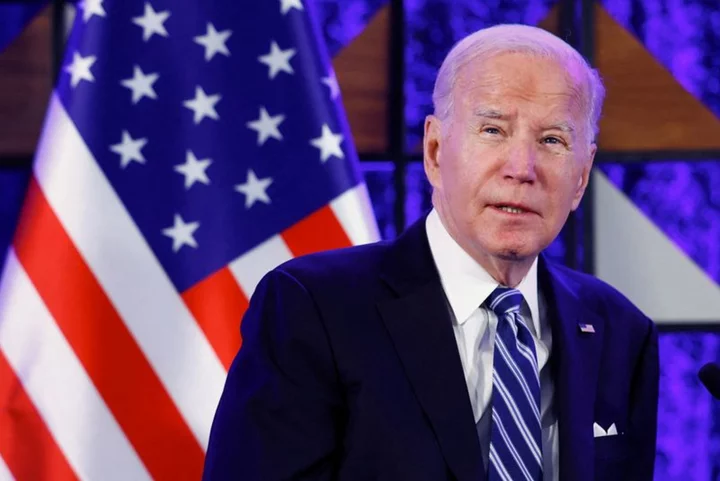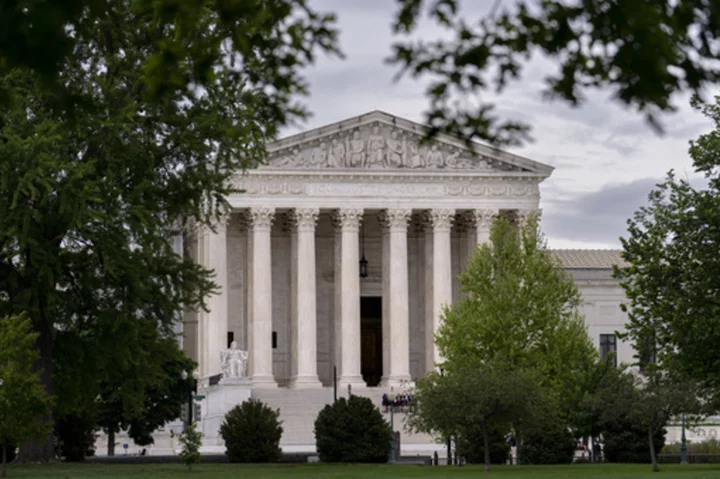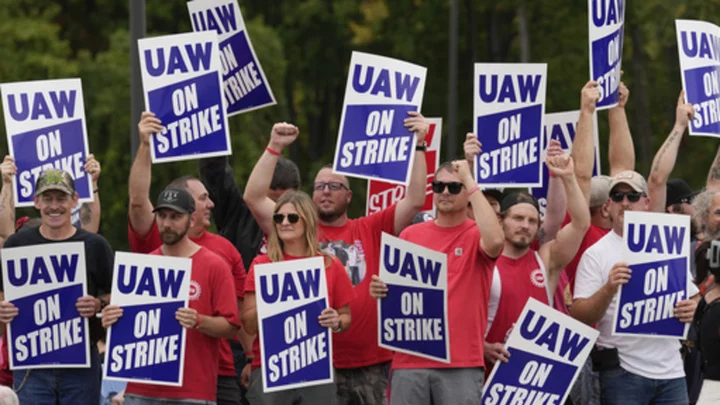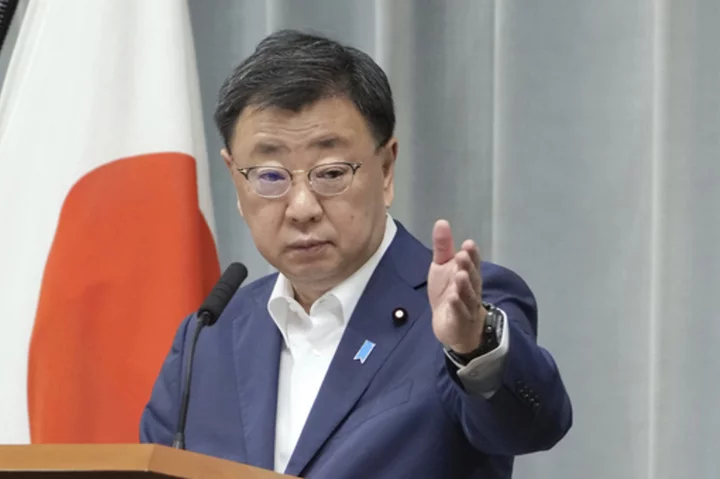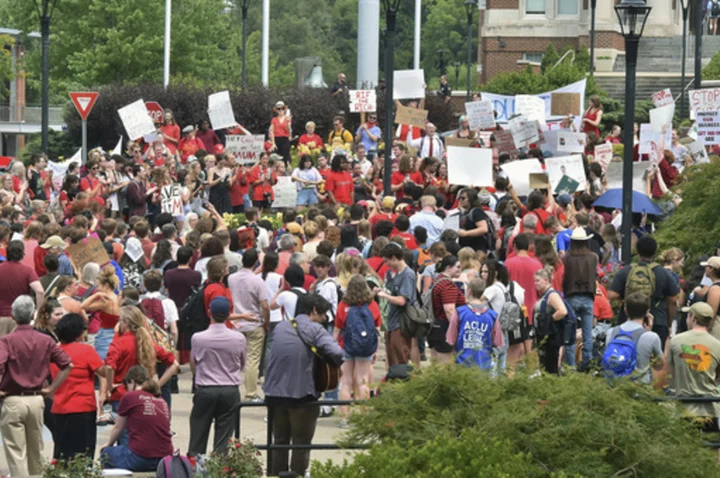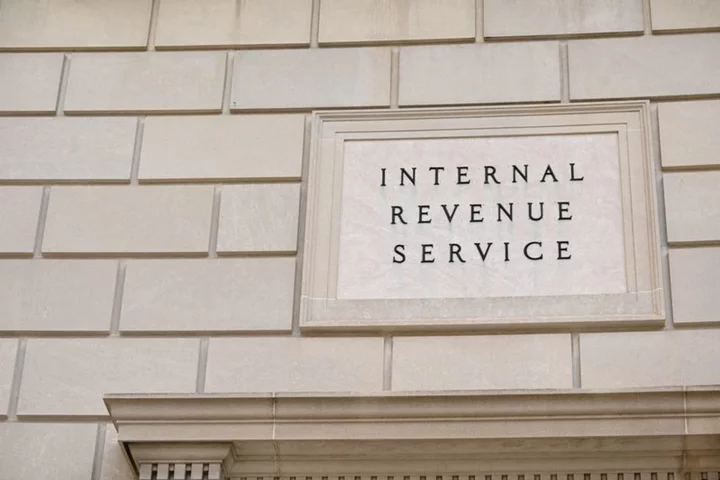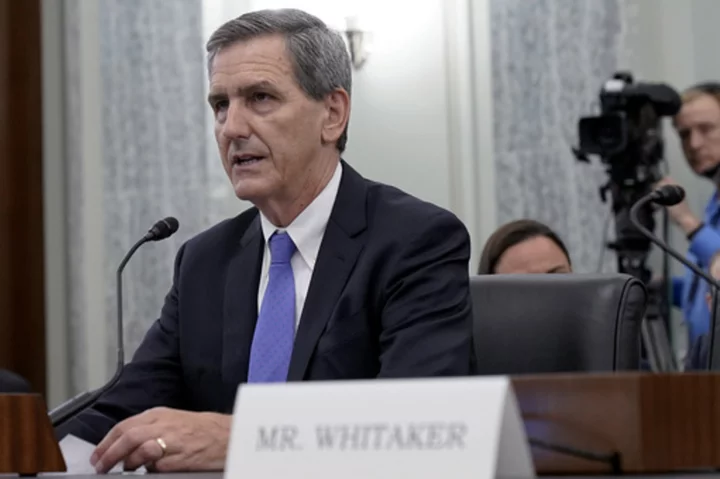By Andrea Shalal and Jeff Mason
WASHINGTON (Reuters) -U.S. and European Union negotiators failed to reach deals to settle longstanding trade disputes in time for a summit at the White House on Friday, but Washington said it would keep providing some relief from tariffs on steel and aluminum, and both sides said talks would continue.
Senior U.S. administration officials said they made significant progress on the trade issues but more work was needed to reach deals on energy subsidies and the steel and aluminum market.
U.S. President Joe Biden hosted European Council President Charles Michel and European Commission chief Ursula von der Leyen for a meeting dominated by discussions about the war between Israel and Hamas, and ensuring continued support for Ukraine in its now 600-plus day fight against Russia's invasion.
"We are more united than ever," the leaders said in a joint U.S.-EU statement that touched on the war in the Middle East, Russia's war in Ukraine, concerns about China, and pledged continued efforts to strengthen economic security, ensuring secure energy transitions in our economies and reinforcing multilateralism and international cooperation.
Biden noted at the start of the meeting that the EU and the U.S. were standing together to support Israel and Ukraine, but would also discuss ways to address "unfairly traded steel and aluminum imports" and talks about critical minerals.
"Sometimes we have our differences," Michel said. "That’s why we are here: to cooperate, to find solutions that work for businesses and workers on both sides of the Atlantic."
Trade negotiators had scrambled on Thursday to avoid the U.S. resuming import tariffs on EU steel and aluminum imposed by then-President Donald Trump in 2018, ultimately agreeing to keep the tariffs at bay while they keep talking.
The joint statement said negotiators had made "substantial progress to identify the sources of non-market excess capacity" and find ways to measure the emissions intensity of the steel and aluminum industries.
"We look forward to continuing to make progress on these important objectives in the next two months," it said.
A senior U.S. administration official said the U.S. would roll over tariff rate quotes, or TRQs, by the end of the year if more time for talks was needed, adding, "We are committed to providing certainty to our industry and workers and to our EU partners."
The United Steelworkers (USW) International labor union welcomed what it called the Biden administration's commitment to defending domestic steel and aluminum workers instead of "bowing to outdated thinking on international trade and the EU’s political pressure."
Friday's move staves off the resumption of the Trump-era tariffs on EU-produced steel and aluminum that the Biden administration had agreed to halt in exchange for a quota system, but it was unclear how long a reprieve would be granted.
The Biden administration suspended tariffs on EU steel and aluminum imports on the condition that both sides agree by the end of this month on measures to address overcapacity in non-market economies such as China, and to promote greener steel.
A second official said more work was needed to finalize an agreement, but there was no discussion of reinstating - or snapping back - Trump's "national security" tariffs on steel and aluminum, the official said. "That is not on the table."
Any deal seems far off, with Washington keen that the EU apply the metal tariffs to imports from China and Brussels refusing to do so before a year-long investigation to comply with World Trade Organization rules.
Negotiators would keep talking over the next two months, but Washington is already eyeing a two-year extension of the tariff relief, mindful of the challenges of getting a deal done in 2024 given EU elections in early June and U.S. elections in November.
The summit also fell short on a deal to lessen the hit on European producers from the U.S. Inflation Reduction Act, which offers consumers tax breaks to buy electric vehicles (EVs) assembled in North America, by allowing critical minerals mined or processed in Europe to qualify for some of the tax credits.
The joint statement cited progress toward a "targeted" deal, and said the leaders looked forward to continuing negotiations in the coming weeks.
(Reporting Andrea Shalal and Jeff Mason; Additional reporting by Jarrett Renshaw; Editing by Heather Timmons, Jonathan Oatis, Alistair Bell and Marguerita Choy)

